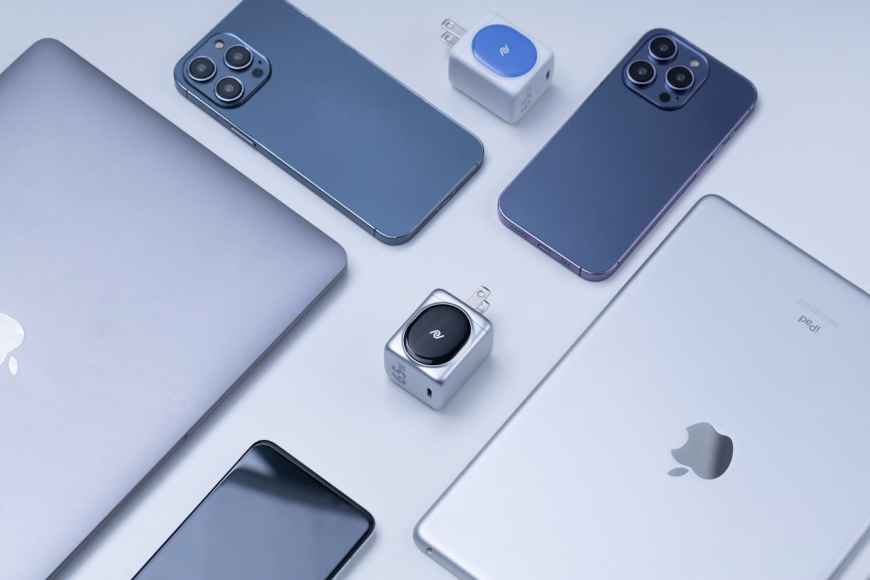7 Expert Tips to Extend the Lifespan of Your Mobile Devices
Mobile devices dominate today's market count of electronic devices. How do you ensure your expensive mobile device lasts longer? It all depends on how and how long you use it at a go.

At some point in time of our lives, we will need to buy a new device to replace an older version due to one or more reasons. How a device performs and its ability to last longer, for the maximum time possible, depends on us.
Have you ever replaced a device or its accessory very early counting from the time of its first usage? It’s true that the durability of a device, mostly electronics, depends on how it was made—its internal build, material quality and some other external factors—but sometimes, we must admit that we often shorten the lifespan of our new electronic devices. This is due to how and how long we use the device at a go.
In this article, I’m highlighting some points on how to ensure that our expensive mobile phones, tablets and PCs stay alive for the maximum time possible under suitable conditions. (I'm lying, mine is not expensive! It's an old itel A56 smartphone). Well, read along to discover the seven expert tips that will help extend the lifespan of your mobile devices.
Although the information presented in this article has a focus on mobile phones and tablets, the same will prove to help deal with other smart devices such as; iPods, smartwatches, PDAs, and Notebooks—just to name but a few.
Read the quick guide before the first usage
Most devices come with printed instructions on the best ways to handle assembling, installation, configuration and usage. Different manufacturers have diverse ways of providing instruction manuals; either a hardcopy or a soft version and some come prepackaged, linked to a webpage or an app; chances are your device's manual is included in its package, coded into the device menu* or resourced on the manufacturer's website.
Before you do anything to the device, why not read the instructions? Even if you have used a similar device in the past, remember that most devices come with software updates or hardware upgrades and their operation may be a bit different from older versions.
*NB: Because of modern technology, most programmed devices with screens; phones, tablets and other smart ones, have their instructions (quick guides) embedded in their menu. In such instances, charge the device to full, power it on and before proceeding to use any other (extra) feature, read the “soft guide”.
If you have difficulties in setting up such devices, get online help before your first use or contact an expert. Never try configuring a device you are not familiar with.
Do not use off-brand accessories
All devices come branded with their original accessories—in the case of phones, tablets and PCs—these may include batteries, earphones, and chargers among others. Such accessories were tested with the devices; taking their build and other important parameters into consideration for quality check approval and packaging and were found to be suitable.
For a particular device, using different accessories or parts, not approved by the manufacturer, when the original is damaged or lost can cause compatibility issues that may even result in serious hardware damage. These problems may not occur instantaneously, but with time the device may be damaged.
Contact the manufacturer for an original replacement or recommended purchase rather than using an off-brand accessory should yours be lost or damaged. Don't borrow accessories from friends because you think it's the easy way out.
Older batteries are threats
Do you agree that an older battery has a lower ability to hold up a charge? It drains faster and needs to be recharged often. Heat generation is yielded with each recharge and, as you may know, lithium-ion batteries and heat are good enemies. This can affect the device’s body temperature. Do you know what happens to the circuit board when it receives or generates much heat? Well, most micro components get burnt and that’s the end of your device’s life.
Never over-expose your device to others
Sometimes, we cannot help but allow others to have a feel of our new handsets or smart devices and that's completely normal. But before we allow others to handle and explore our new mobile devices, isn't it prudent to consider the "What if..." of the equation? What if they are not familiar with your device’s usage and operation? Will you still grant them access to it?
Most people with little or no knowledge about a particular device’s operation will just experiment with certain features or menu items in an attempt to learn. This can result in locking up your device, blocking some features or even causing something worse. This may seem obvious and common sense but believe me, it does happen in most cases.
Children usually mishandle mobile devices, dropping them, hitting them against hard surfaces or, worst of it all, playing with them alongside liquids. Do you know the effects? Do not grant children access to your mobile or electronic devices. Even better, don't allow minor children anywhere near your expensive electronics.
Employ the services of authorized technicians only
Sometimes, due to some external factors or because of our own making, the device we are using can catch a problem. If this should happen to you, contact your device’s manufacturer or an experienced authorized technician. Do not employ the services of self-made technicians otherwise known as roadside repairers.
They may try to work around certain operations, or sometimes, open your device in an attempt to fix the problem. This can result in further damage. Also, your device warranty may be void should the warranty seal be broken in attempts to open it during the event of fixing.
Protect the outer
While we care much about the device’s internal operation, we often ignore the outer. The outer parts, just like the inner parts, count if we want to hold the device for a longer lifespan. Liquids and moisture are part of the killing agents of mobile devices and even other electronic devices. Why not use a secondary thin anti-moisture cover* to protect the device from excessive moisture and liquids?
*NB: The anti-moisture covering itself should not be heat-generating. Contact an expert if you want to use one.
To the best of your ability, never drop your mobile device or at least do not mishandle it. Keep it away from liquids and avoidable moisture, heat and too many places with extremely cold or hot temperatures.
Another important thing to note is the touch screen of your smart device. Anti-scratch screen protectors are also essential in extending a device’s lifespan concerning its screen. Most devices come with protective screen covers, if not, get one quality-of-a-kind from an expert. Do not compromise quality, always look for the best even if it’s got to be expensive.
Reduce the burden on your devices
Do not overuse your device. Yes, do not overuse it. You may be asking whether there is something like overusing a device or probably asking about the essence of owning the device in the first place. Well, sometimes we are the killers of our mobile phones and tablets and this will always be the case because we frequently use those devices without taking chances for them to have their rest.
The burden of our phones having to deal with excessive tasks during frequent usage is another thing that reduces the lifespan of these small babies; phones and tablets. Why? Excessive device usage means excessive memory processing which comes with more heat generation. This drains our batteries at faster rates. Frequent recharge, arising from frequent discharge to care for the other tasks ahead puts strains on the device.
This usually reduces the battery's ability to take up and hold a charge. With time, faster rates of battery drainage mean even more frequent charges, and that's an enemy that battles with your phone's lifespan (Jack, we are the cause of our problems).
Try as much as possible to reduce the usage of your mobile device or, at least, the rate at which you use it. This will not only reduce the burden on the phone but will also ensure optimum performance. Your battery's capacity and its ability to take up and hold a charge will, for the longest time, remain in the best state as when you first purchased it.
In conclusion, how and how long we use our mobile devices are risk factors for their short lifespans. The expert tips presented above will help to extend the lifespan of our mobile devices.
Do you have any additional suggestions to help us increase our mobile devices' lifespan? Let's get them in our comments section (please scroll down a bit) and don't forget to share the good news with your family and friends.
What's Your Reaction?


























